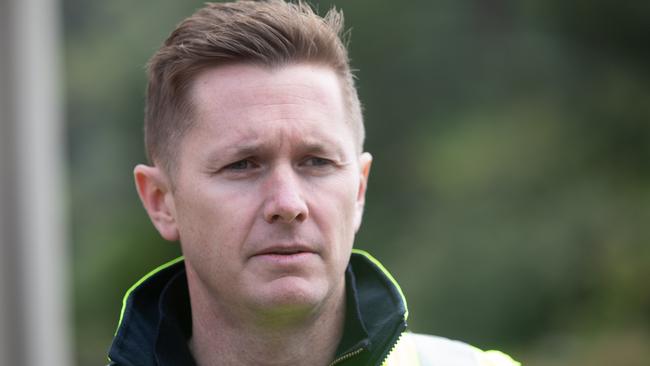NFF says AWU has ‘eagerly misconstrued’ their proposal
The AWU has demanded the National Farmers Federation urgently clarify an ‘alarming’ food-for-labour proposal, which comes weeks after a Bundaberg businesswoman uncovered pay discrepancies for vulnerable South Sea Islander workers. Read the latest on this issue:

Bundaberg
Don't miss out on the headlines from Bundaberg. Followed categories will be added to My News.
The National Farmers Federation has defended claims made by the Australian Workers Union that it is considering a “food-for-labour” proposal which could see farm workers paid in food and essentials.
The Australian Workers Union demanded the NFF and its president, Fiona Simson, urgently clarify the “alarming” proposal.
AWU national secretary Daniel Walton said according to media reports, the NFF was proposing changes to take “non-monetary benefits” into account when registering workplace pay deals, which would include essentials such as accommodation, electricity, food and fuel.
“The days of vulnerable workers being ‘paid’ with food instead of money should be long behind us. Ms Simon must urgently acknowledge that these arrangements belong in the history books,” Mr Walton said in a media statement.

“Some jobs in remote locations require employers to provide accommodation and life essentials. At no point, however, should this necessary provision of essentials be considered some kind of ‘service’ for which workers are expected to forgo pay.
“If farmers want to run bed-and-breakfasts from their properties they are free to do so. But they should never be allowed to force vulnerable workers to purchase that kind of ‘service’ from them.
“If you work in Australia you deserve the Australian minimum wage and not a cent less. No ifs, no buts. I don’t know why this basic moral concept seems so hard for some people to accept.
“I understand the NFF is going further today than they have before in acknowledging how serious the problem of worker exploitation is on Australian farms. That’s a positive change in direction. There are some other meaningful recommendations in their position paper, but they are overshadowed by this alarming ‘non-monetary benefits’ proposal
“To engage constructively the NFF needs to very clearly discard any notion that workers in Australia can be legitimately paid in food and essentials.”
Ms Slade said she was ‘disgusted’ to hear about the alleged proposal.
“Considering the hard work, long days and minimum wage that these workers are already getting, to be paid in food is offensive,” she said.

“Unless food becomes legal tender, farm workers should be paid wages.”
Travelling workers also spoke to the Bundaberg NewsMail in June 2022, claiming they were treated badly by labor hire businesses and farmers in Bundaberg, which they said has a poor reputation for farm work within the backpacker community.
NFF CEO Tony Mahar hit back at the AWU’s claims, saying the proposal was ‘eagerly misconstrued’ by the AWU and did factor in wages.
“What we’ve put forward is not about eroding wage entitlements. It’s quite the opposite,” Mr Mahar said.
“It’s not currently legal to negotiate a base rate of pay below the award rate, and we’re not proposing to change that.
“The intent is to create an overall package that’s more attractive than the award.

“At the moment, farmers default to using the award system, because negotiating an enterprise agreement is complex and inflexible. It doesn’t work for small businesses, or for the unique circumstances of remote farming businesses.
“We want to make that system more user friendly. That includes allowing employers to reflect non-monetary entitlements like food and accommodation in the agreement. These are important benefits for people working in remote locations and ought to captured in their agreement.
“It’s unfortunate our proposal has been so eagerly misconstrued by the AWU.
“We’ve released 40 recommendations in total, many focussed on increasing protections for workers such as tougher penalties for wage theft.
“We’re heading to the Jobs Summit with an intent to collaborate and find solutions, not to pick old fights.”




